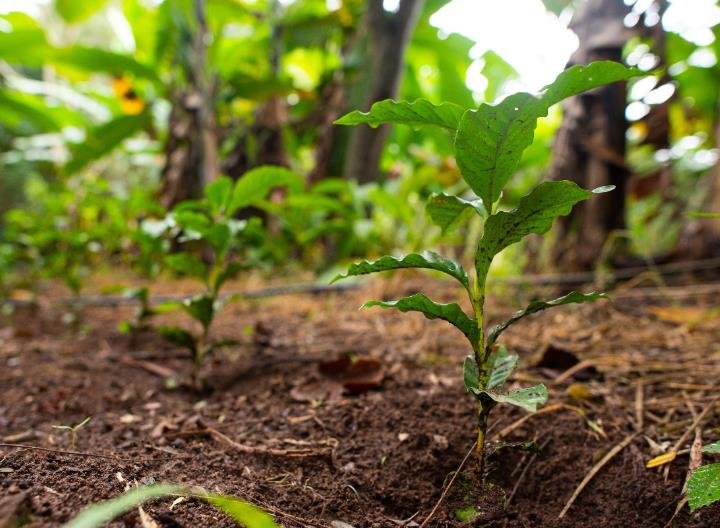Saudi Arabia has unveiled a bold new initiative, the Riyadh Action Agenda, aimed at addressing critical issues like land degradation, desertification, and drought resilience. Launched on December 6, 2024, during COP16 in Riyadh, the action plan seeks to mobilize both state and non-state actors to generate real solutions to global land challenges.
Dr. Osama Faqeeha, Deputy Minister for Environment and key figure behind the initiative, officially introduced the Riyadh Action Agenda during his keynote speech at the high-level interactive dialogue on sustainable and resilient agri-food systems. With Saudi Arabia presiding over the UNCCD COP16 Presidency, this plan is set to drive lasting change, ensuring that action on land restoration extends far beyond the COP16 conference itself.
Addressing the Urgency of Land Degradation
The launch of the Riyadh Action Agenda is a critical step in addressing the mounting environmental challenges facing the globe. Land degradation, driven primarily by agricultural practices, has become one of the leading environmental crises of our time. Agriculture alone accounts for a staggering 23% of global greenhouse gas emissions, 80% of deforestation, and 70% of freshwater use, according to the UNCCD.
Dr. Faqeeha’s remarks at COP16 emphasized the urgency of reversing these trends. He stated, “If we are to accelerate land restoration and drought resilience initiatives at the pace and scale required, then it is critical we continue to mobilize and incentivize action long after COP16 in Riyadh ends.”
The Riyadh Action Agenda will build on the momentum generated by COP16 and engage with a wide range of stakeholders, including farmers, indigenous communities, and the private sector, to implement tangible solutions. The initiative focuses on practical actions that aim to restore degraded lands, reduce desertification, and build resilience against the increasing threat of drought, which is becoming more pronounced due to climate change.

A Two-Year Commitment to Global Land Restoration
The Riyadh Action Agenda is a two-year initiative that will focus on driving measurable progress on land restoration. The program seeks to align with Saudi Arabia’s long-term environmental goals and Vision 2030, which includes sustainable agricultural practices and bolstering environmental resilience as key priorities.
During the Agri-food System Day at COP16, experts gathered to discuss strategies to enhance healthy soils, resilient crops, and sustainable food systems. The day coincided with World Soil Day, underscoring the critical importance of soil management to the global food and water security. The loss of fertile soil is a major contributor to global food insecurity and environmental decline, with 24 billion tonnes of fertile soil being lost each year due to unsustainable agricultural practices.
Dr. Faqeeha highlighted the need for a shift in how we view soil, stating, “Around 95% of our food comes from the soil, and yet we continue to treat it like dirt. Unsustainable land management and industrial-scale agriculture are accelerating the pace of degradation, affecting everyone from farmers working barren fields to consumers facing rising food prices.”
The Economic Impact of Land Degradation
The impact of land degradation is not only environmental but economic. The UNCCD estimates that by 2050, crop yields could decline by 10% globally, with regions most affected seeing declines of up to 50%. This would lead to an estimated 30% increase in food prices, exacerbating issues of food insecurity for vulnerable populations.
The Riyadh Action Agenda aims to address this looming crisis by focusing on practical and immediate actions to reverse the negative effects of unsustainable farming practices. Dr. Faqeeha pointed out that rather than reinventing solutions, the focus should be on reinvesting agricultural subsidies currently contributing to land degradation, suggesting that funds could be diverted into land restoration efforts.
By doing so, Saudi Arabia is not only advancing its domestic environmental goals but also positioning itself as a leader in the global fight against land degradation and climate change. Through the Riyadh Action Agenda, Saudi Arabia is offering a platform for global cooperation, inviting countries and organizations to join in the collective effort to restore the world’s lands.
A Global Call to Action
The Riyadh Action Agenda invites global stakeholders to take action on land restoration and drought resilience. The initiative recognizes the importance of multilateral solutions and emphasizes the need for both public and private sector participation. Through partnerships, knowledge sharing, and a commitment to long-term action, the Riyadh Action Agenda has the potential to deliver substantial progress in the fight against desertification and land degradation.
At the heart of this initiative is a commitment to inclusivity and resilience, ensuring that communities most affected by land degradation—especially farmers and indigenous peoples—are at the forefront of the restoration process. By providing incentives and mobilizing resources, the Riyadh Action Agenda aims to create an inclusive framework for land management that delivers benefits across regions and sectors.
Key Objectives of the Riyadh Action Agenda:
- Restoring Degraded Land: Targeting the restoration of lands damaged by desertification and unsustainable farming.
- Building Drought Resilience: Developing strategies to mitigate the impacts of drought on agriculture and communities.
- Collaboration with Stakeholders: Engaging farmers, governments, private sectors, and indigenous communities to drive sustainable land use practices.
- Reforming Agricultural Practices: Addressing unsustainable agricultural subsidies and encouraging more sustainable food production methods.
The Riyadh Action Agenda is set to be a pivotal initiative in the global fight against land degradation. It provides an opportunity for countries around the world to join forces in tackling one of the most urgent environmental challenges of our time. With Saudi Arabia’s leadership and commitment, this initiative could mark the beginning of a significant shift towards more sustainable, resilient, and inclusive agricultural systems.
